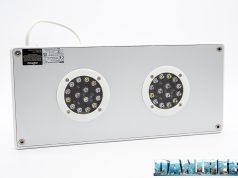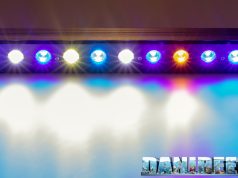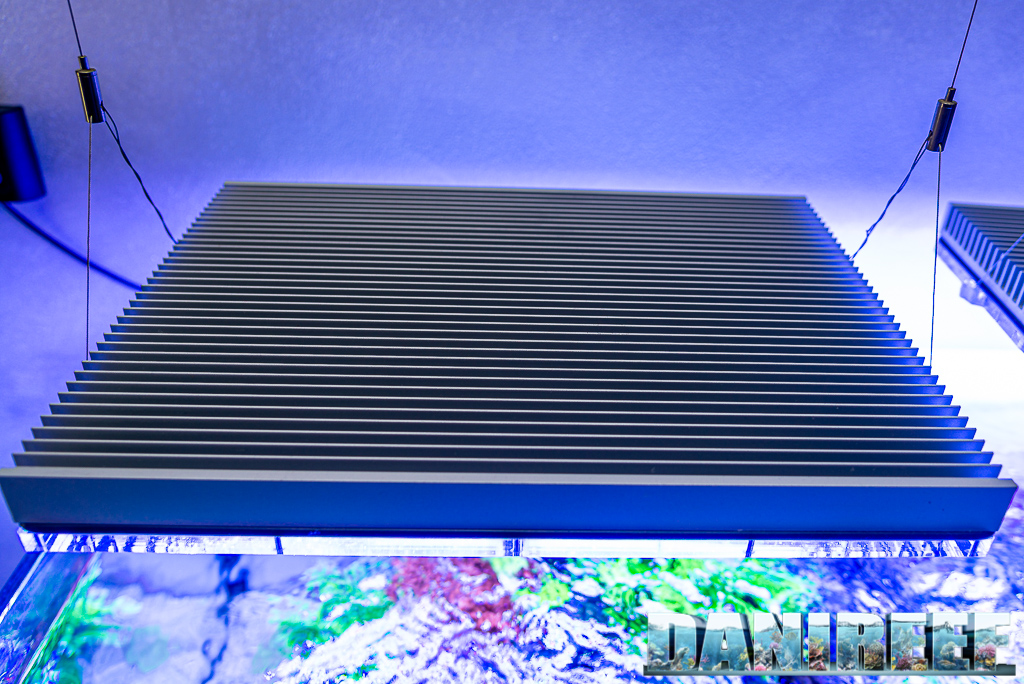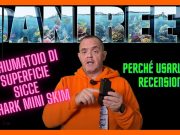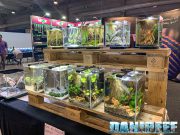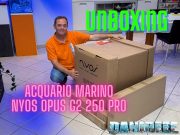
After having tested the elder sister, it’s now the time for the smaller LED ceiling light Aqamai LRS, a single cluster model that seems to be perfect for nanoreef. Let’s see the tests in our DaniReef LAB.
This article is available also in: italiano
This ceiling light is the same as the Aqamai LRM, the difference consists in the number of clusters, 2 for the LRM and 1 for this LRS. So the general part of the presentation can be similar if not the same as the one of the Aqamai LRM (that you can read here), also to see how the ceiling light behaves with double the power.
Technical characteristics of the Aqamai LRS
It has 8 LED colorations divided in 6 channels. In total it has 15 LED in the single cluster. Pretty interesting the LED “cool white”, 3 Nichia NVSW219C of CRI > 70 and 180 lumen/watt, a very high value.
The remaining are 1 UV SemiLEDs of 405 nm, 2 Indigo SemiLEDs of 415 nm, 3 Royal Blue Nichia NCSC219BT (very beautiful, I have to say), 3 Blue Nichia NCSB219BT, 1 Green Nichia NCSG219BT, 1 Red-A Nichia NCSR219BT and 1 Red-B OSRAM Oslon SSL.
- Power: 50 w
- Dimensions: 22x16x2(h) cm
- Selling price: 290 euro vat included

Construction
The Aqamai LRS is perfectly build. It’s very thin and it has an active cooling system that adjusts on the temperature of the LED. If it’s too high, before it can damage the LED, the ceiling light goes in standby mode. This can happen if the ceiling light has gotten dirty and has dust in the ducts. In this case you only have to clean before putting it back to work.

The programming
The ceiling light can be used through an app downloadable for Apple or Android that uses its own WiFi network. It can be associated to your home network for you to control it directly with your device without changing the network. The app works very well and it can be used easily. It has different preset programs depending on the corals in the tank, SPS, LPS or softies.

Here above there’s the manual command as it appears on iPad, where the two sliders represent the erogated power and the two circular sectors the color gradation. In the next page we’ll see our findings.

Before we see the values we collected let’s see in detail the 6 available channels and the relative consumptions.
Channel 1 Cool White
Channel 2 Green
Channel 3 Red and Photographic Red
Channel 4 UV and Indigo
Channel 5 Royal Blue
Channel 6 Cyano (Blue)
All the values we’ve found and our working method DaniReef LAB are on page two.
























